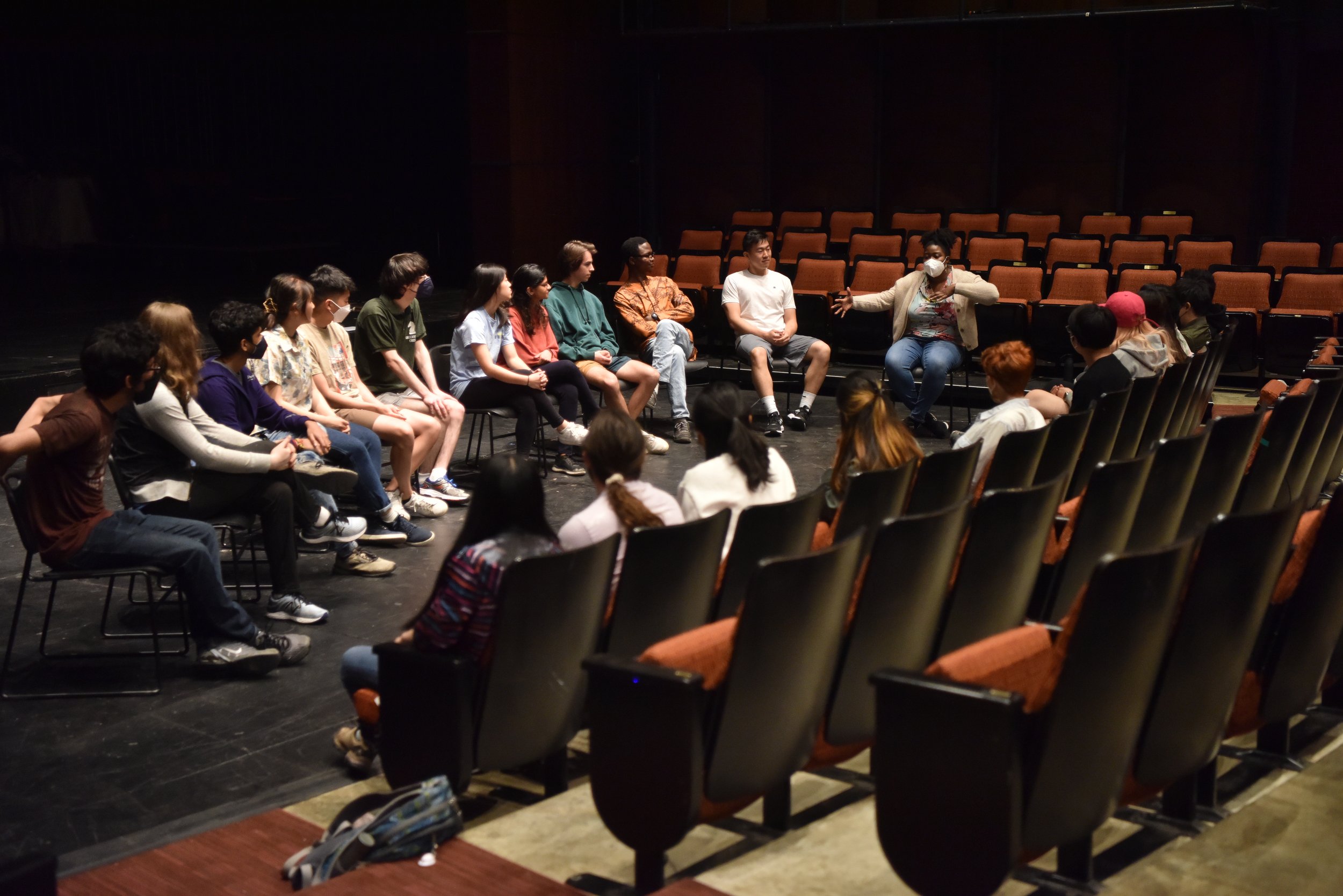
Teaching
Approach and Framework
Mary’s framework for teaching is rooted in applied theatre and creating experiential learning classroom spaces embedded in the pedagogy of dialogue and anti-oppression. She has taught at drama schools at Carnegie Mellon University School of Drama and Point Park University Conservatory of Performing Arts (COPA).
-
This course aims at helping all incoming first-year undergraduate and graduate students learn how they can contribute to a community within the School of Drama, and in the professional field beyond, that is actively anti-racist and combats all forms of identity-based oppression and discrimination, including oppression and discrimination based in race, ethnicity, religious affiliation, sex, gender identity, sexuality, and disability.
The course was taught across four sections that met bi-weekly, reaching 91 students. The course culminated in an end-of-year presentation on learning in small groups. The intention of this course is to begin to shift the culture in the School of Drama toward actively anti-racist and equitable principles and practices.
-
In what ways can theatre be used to solve social issues? This class will use theatrical storytelling to prototype solutions to unsolvable cultural problems. Using an applied theatre praxis, students will learn about the work of Augusto Boal's Theatre of the Oppressed, specifically Forum Theatre as one way to use performance to address a specific social issue decided on by the students. As part of the course, students will devise a performance for a live audience to engage with at the end of the class. Leading up to the final performance, students will learn, analyze, deconstruct, and think critically about how theatre can be used as a technique to engage in creating revolutionary change. Open to non-majors.
-
How can tools from improv be applied to the workplace? Using concepts from improv comedy of listening, yes, and..., and collaboration we will learn how to be a better colleague at work. Through this course, you will build an ensemble with your peers to foster team building, learn how to be present in the moment, and how to adapt in moments of spontaneity. During the course, you will be introduced to improvisational techniques and exercises that will develop your performance ability, increase your skills of collaboration and deepen your listening skills. Part of this course will include attending live improv shows. At the end of the course, you will participate in an end-of-class performance for a live audience to showcase what you've learned. Open to non-majors.
-
This course will consist of a sequence of improvisational and interactive games and exercises that build upon each other and are engaged by individuals and in groups. Each class will begin with a check-in followed by an opening activity led by a student. During each class, we will do activities designed to prepare you for the forms and activate the material and concepts for that day. Following some activities, there will be opportunities for feedback and dialogue. Each class will end with a closing activity led by a student followed by a check-out. The exercises, games, and activities will become increasingly more complex as you and your classmates develop ensemble, trust, and awareness of the approaches. The pacing of the course will be determined by the number of students attending and your ability to absorb and apply new concepts.


